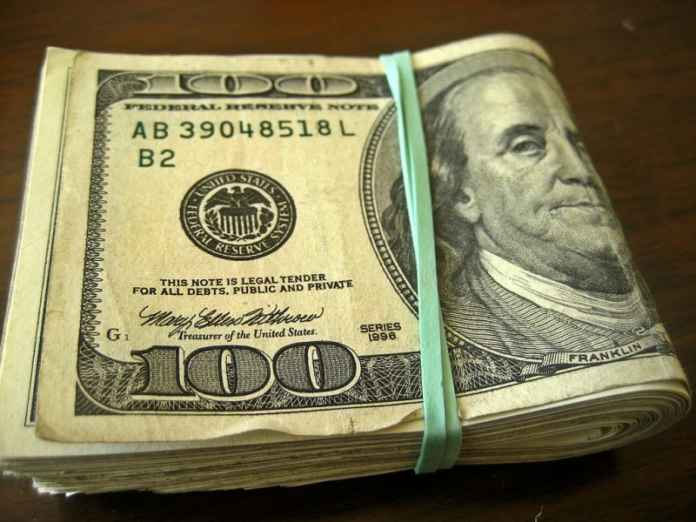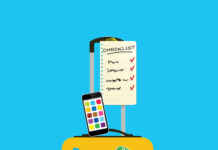The biggest challenge of a traveler is to manage money during travel. Most of the time, the new city is just like a maze. Sometimes, there is only one ATM and that too in the outskirts of the city and sometimes your card is not accepted. Rather than making an effort to call bank manager and seek help, its best that you start the voyage with Plan-B. Here are the tips of how to keep your money flowing and safe on the road.
Carrying cash
The golden rule for traveling is to never keep all your eggs in one basket (all your money in one bag or wallet). Touchwood, if you get robbed, you lose everything. Carry an ample amount of currency notes for a day hidden somewhere with full caution and leave the rest in a safe place, like in your hotel safe. Each person has their own trick for hiding emergency cash. Secret Pockets, Money belts, soft drink canister in your shaving kit. In any case, when was the last time you heard of somebody stealing a shaving kit?
Here are some more tips for how to handle cash when you’re on the roads of foreign country:
Changing money on the street is a great way to get fooled easily especially if you are alien with the local currency. Always rush to a recognized exchange counter for changing foreign currency, such as a bank or exchange counters. Besides, there are many ways to exchange foreign currencies like online, offline etc. But, pre-planning shall always reward you with better rates rather than on the spot trading.
Ignore the boards of ‘No Commission’ as this never means that you can save extra bucks. Do your own research and find out exactly the right amount of money you’ll get from the exchange, the more you get, the better the deal is.
Also, there are few destinations where cash is your only support. Some parts of Asia and Africa are still not in touch with the global ATM network, so the only money on hand is what is actually in your hand. But, the major challenge is to keep your money safe and secure when you travel.
Cards
Using cards every now and then may load you with unwanted debt, so it’s better to use a mix of cash and card. Credit cards are quite helpful for larger purchases, making reservations and in case of emergencies. On the contrary, you can easily access Debit cards the same way you use cash, it has your real time money and thus, you are saved from heavy credit card bills after journey.
If your ATM debit card is associated with a key global card group, you’ll face no problem making withdrawals in various countries worldwide. A lot of card programs also contain emergency cash or card replacement services, which can get you out of a tense spot, so it is essential to know how to contact your card issuer bank if and when you need them. Nowadays, many banks and credit card companies offer prepaid cards. These cards can be charged as much as you like and still can be used like a debit card. They are great for your budget travel. Such cards are available in single or multiple currencies and more often have the same features as debit cards. Just check in advance that how easy it is to get any outstanding balance back to your account. As an additional bonus, most cards offer complimentary exchange rates you can lock in before you travel. You can also recharge your card online, by phone or by SMS.
Besides, if you’re using plastic money on voyage, here are a few easy rules that every traveler should follow:
- Make sure that your card (debit, credit or prepaid) is accepted in the country you are about to visit.
- Make contact with your bank and give them details about your journey like where you are going and when and get complete details of rules of using card in that country so they don’t block your card the first time you use it on your trip.
- Be extra careful about your card and don’t leave it anywhere. Most credit card scams require time alone with your card.
- Keep emergency phone numbers like of local police, embassy of your country etc. in a pocket diary in ready to use condition to cancel your cards in case of mishappenings.
- Always carry back-up cash (at least for a day) or traveler’s cheques as ATMs depends upon electricity supply, the thing which is notoriously unpredictable in most of the developing countries.
- Bringing multiple cards and store your other card in your room’s safe. This would be helpful in case of emergency.
- Be cautious of bank charges as banks charge a particular fee for every withdrawal. So withdraw the sufficient amount to prevent the load of unnecessary and heavy bank charges.
- Try to pay in the local currency from your card(s) when abroad if you have option, as your bank’s rates will be better than that of retailer’s.
Traveler’s Cheques
The global explosion of ATMs (you can find them even in the Himalayas) has made travelers cheques a less trendy choice. These cheques are well accepted by banks and moneychangers all across the world and are simple to swap if lost. As long as you have all the receipts and the emergency phone number, you can avail the new cheques within few days. Just remember, before you buy such cheques, make sure that they are acceptable in the destination you are going, and in which currency the cheques should be drawn in. For safety, keep the receipts apart from the cheques.
Wiring Money
If all other options fail, you could always ask someone to wire you money. It is the easiest and quickest way to have money instantly. Western Union and Moneygram have agents all over the world where you can receive a wire transfer from relatives or friends. But you have to pay a premium to get this service, sometimes as much as whooping 30% of the transfer amount.













